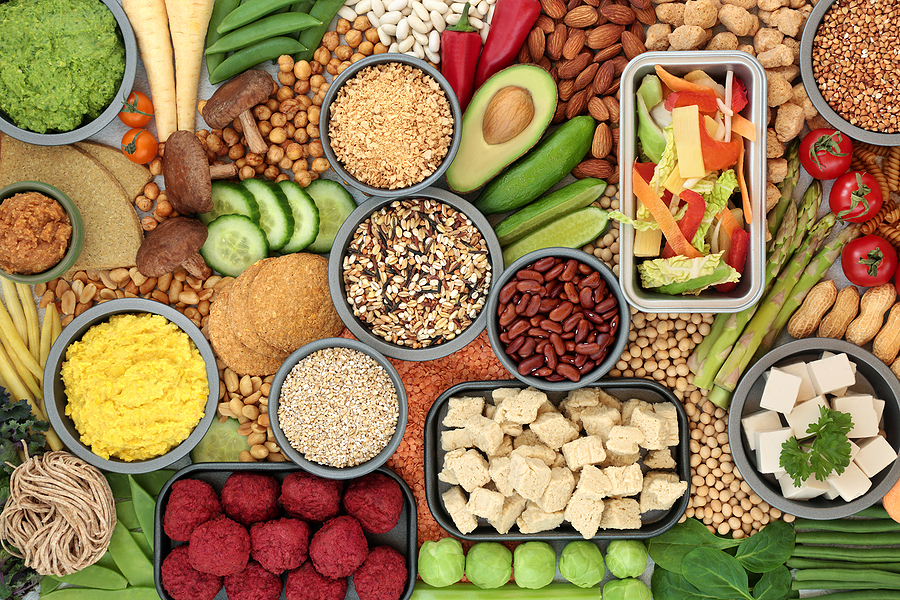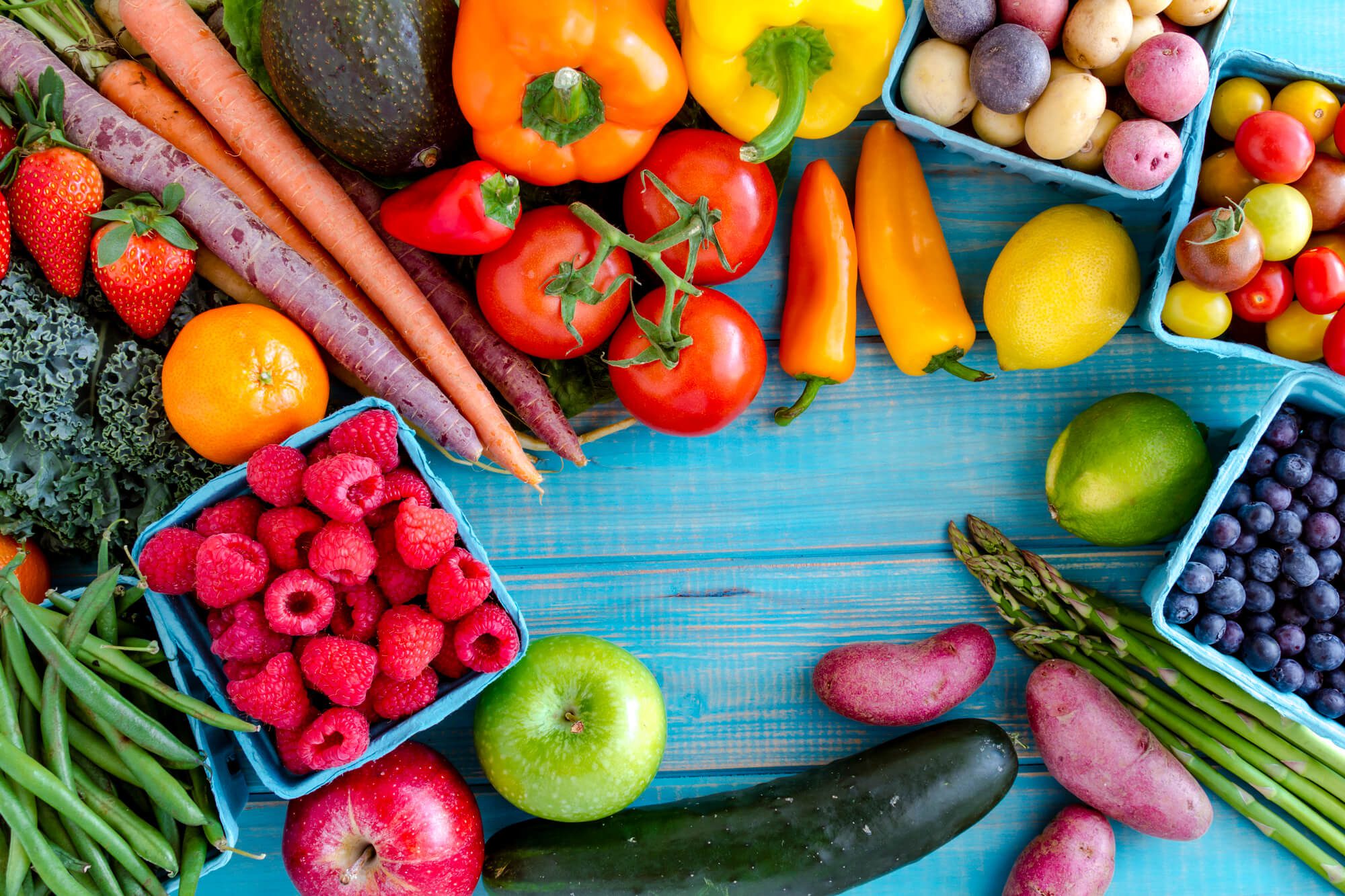BBQ Sauces Ranked: Which Ones Complement Plant-Based Meals Best?
BBQ Sauces Ranked: Which Ones Complement Plant-Based Meals Best?
Blog Article
Everything About Healthy And Balanced Food: Benefits of Embracing Plant Based Options
The conversation bordering plant-based diet regimens has actually gained substantial attention recently. Several individuals are checking out the prospective wellness benefits, dietary benefits, and environmental impacts connected with these nutritional options. As individuals end up being much more mindful of their food's influence on wellness and sustainability, questions arise regarding the usefulness of taking on such a way of life. What certain adjustments can one expect, and exactly how might these options improve not only personal health and wellness however likewise the earth's future?
Comprehending Plant-Based Diet Regimens
Many people associate plant-based diet regimens primarily with vegetarianism or veganism, these diets can encompass a wide range of consuming patterns that focus on whole, minimally refined plant foods. Such diet plans usually consist of fruits, vegetables, whole grains, beans, nuts, and seeds, while eliminating or limiting pet products. This flexibility enables individuals to customize their dietary options according to personal choices and dietary requirements. Some may adopt a primarily plant-based diet while still sometimes consuming meat or dairy products, often referred to as a flexitarian technique. The focus continues to be on incorporating even more plant foods, which can lead to a varied variety of flavors and meals. Recognizing these various interpretations of plant-based eating is vital for valuing its ease of access and allure in modern food society.
Wellness Benefits of Plant-Based Foods
The health advantages of plant-based foods are substantial, providing a nutrient thickness benefit that sustains overall well-being. Study suggests that these foods can boost heart wellness and play an essential duty in effective weight management. By including much more plant-based choices, individuals may enhance their nutritional selections and promote long-lasting health and wellness.
Nutrient Thickness Advantage
Nutrient density plays a vital role in the wellness advantages of plant-based foods, making them an engaging choice for those seeking a balanced diet regimen. Plant-based foods, such as fruits, veggies, beans, nuts, and entire grains, are often rich in crucial vitamins, minerals, and anti-oxidants while being lower in calories. This high nutrient thickness permits individuals to take in less calories while still fulfilling their dietary requirements. Furthermore, these foods are packed with dietary fiber, advertising digestive system health and wellness and aiding in weight monitoring. By integrating nutrient-dense plant-based alternatives, customers can boost their total health, support their body immune systems, and decrease the threat of chronic diseases. Inevitably, the nutrient thickness of plant-based foods highlights their importance in a health-conscious lifestyle.
Heart Health And Wellness Improvement

Weight Monitoring Support
In addition to advertising heart wellness, a plant-based diet plan can significantly assist in weight administration. This nutritional strategy stresses entire foods such as fruits, vegetables, beans, nuts, and whole grains, which are normally reduced in calories and greater in fiber contrasted to animal-based products. The high fiber web content aids raise satiation, lowering general calorie consumption. Plant-based diet regimens are typically rich in essential nutrients while low in harmful fats, making it easier to preserve a healthy weight. Research study suggests that individuals that embrace a plant-based lifestyle often tend to have reduced body mass indexes (BMIs) and experience more effective weight loss contrasted to those who consume meat-heavy diets. As a result, welcoming plant-based choices is a critical selection for reliable weight management
Nutritional Worth of Plant-Based Ingredients
Plant-based components are abundant in vital nutrients, my response using a diverse variety of vitamins, minerals, and antioxidants that add to overall wellness. A contrast of protein resources reveals that while pet items are usually considered as exceptional, lots of plant-based choices provide sufficient healthy protein and various other advantageous substances. Recognizing the nutritional worth of these components can aid individuals make informed dietary selections.
Vital Nutrients in Plants
Nutrient-rich active ingredients located in plants provide a varied range of vital minerals and vitamins that contribute considerably to general health. These ingredients are abundant in vitamins A, C, and K, which support immune feature, vision, and blood clotting, respectively. On top of that, plants provide essential minerals such as magnesium, calcium, and potassium, vital for heart health and wellness, muscular tissue function, and bone toughness. The existence of fiber in plant-based foods aids digestion and advertises a healthy and balanced digestive tract microbiome. Antioxidants, located perfectly in vegetables and fruits, help battle oxidative tension and lower inflammation. Several plant foods are reduced in calories yet high in nutrients, making them an exceptional selection for those looking for to keep a healthy and balanced weight while making sure ideal nutrient intake.

Comparing Healthy Protein Sources
Protein sources differ considerably in their nutritional profiles, with plant-based ingredients offering distinct advantages. Unlike animal healthy proteins, which commonly have saturated fats and cholesterol, plant healthy proteins have a tendency to be lower in these undesirable components. Legumes, nuts, seeds, and whole grains are abundant in important amino acids, fiber, vitamins, and minerals. For example, lentils offer high protein web content alongside substantial iron and folate, while quinoa is a complete healthy protein, providing all 9 essential amino acids. In addition, plant-based proteins are frequently gone along with by anti-oxidants and phytochemicals that support total wellness. The change to plant-based protein resources not only boosts dietary intake but likewise aligns with lasting dietary practices, decreasing ecological effect and advertising long-lasting health benefits.
Ecological Effect of Plant-Based Eating
As understanding of climate change expands, numerous people are checking out lasting nutritional options that can considerably decrease their ecological footprint. Plant-based consuming has become a substantial factor to reducing greenhouse gas emissions, which are mostly connected with animals production. The growing of fruits, grains, vegetables, and vegetables typically requires less resources, such as water and land, contrasted to animal farming. Furthermore, plant-based diet plans can result in lowered deforestation, as much less land is needed for grazing animals or expanding pet feed. By changing in the direction of plant-based choices, customers can sustain biodiversity and advertise healthier ecosystems. On the whole, welcoming plant-based consuming not only benefits personal health yet additionally stands for a crucial step towards environmental sustainability and preservation initiatives.
Conquering Common Misconceptions
While numerous people recognize the advantages of a plant-based diet plan, numerous misconceptions usually deter them from totally embracing this way of life. A common belief is that plant-based diets lack adequate healthy protein; nonetheless, various plant sources, such as vegetables, nuts, and tofu, offer enough healthy protein. Additionally, some presume that this diet is pricey, when actually, staples like beans, rice, and seasonal vegetables can be fairly affordable. One more misunderstanding is that plant-based eating is excessively limiting, whereas it in fact uses a varied array of foods and flavors. Numerous worry that a plant-based diet plan might lead to shortages, yet with appropriate preparation, people can acquire all essential nutrients, including vitamins and minerals, while enjoying a vast variety of tasty dishes. Vast Tips for Transitioning to a Plant-Based Way of life
Making the shift to a plant-based lifestyle can be an improving experience, though it frequently needs some assistance to navigate the preliminary modifications. Individuals are encouraged to begin gradually, including even more fruits, veggies, beans, and whole grains right into their meals while decreasing meat and dairy products usage. Dish planning is necessary; preparing a weekly menu can help relieve the change and avoid last-minute unhealthy choices. Checking out brand-new recipes and cooking techniques can likewise preserve and improve the experience enjoyment regarding plant-based eating. In addition, signing up with assistance groups or areas can provide motivation and share important suggestions. Remaining notified regarding nutrition assurances balanced meals, stopping shortages while promoting a healthy and balanced, gratifying plant-based way of life.

Delicious Plant-Based Meal Concepts
Discovering delicious plant-based dish concepts can influence individuals to embrace a much more nourishing diet regimen. One preferred alternative is a hearty quinoa salad, including cherry tomatoes, cucumber, and a tangy lemon-tahini clothing. Another fave find out here now is a full-flavored lentil stew, packed with carrots, celery, and aromatic herbs, best for a reassuring dinner. For morning meal, overnight oats made with almond milk, chia seeds, and topped with fresh berries provide a nourishing start to the day. Furthermore, a lively vegetable stir-fry with tofu and a variety of vibrant veggies can be a quick yet pleasing dish. Luscious avocado salute on whole-grain bread, sprinkled with seeds and spices, uses a straightforward yet delicious treat. These dishes showcase the range and richness of plant-based eating.

Regularly Asked Concerns
Can a Plant-Based Diet Offer Sufficient Protein?
The concern of whether a plant-based diet plan can offer adequate healthy protein prevails. Numerous sources, including legumes, nuts, seeds, and whole grains, can meet protein needs successfully, supporting a balanced and healthy diet plan for individuals.
Are Plant-Based Diet Regimens Appropriate for Kid?
The viability of plant-based diet regimens for youngsters depends upon mindful preparation. Sufficient nutrients must be guaranteed, including proteins, minerals, and vitamins. With proper support, such diet plans can support healthy development and development in kids.
Just how Do I Eat in restaurants on a Plant-Based Diet plan?
Eating in restaurants on a plant-based diet regimen entails looking for dining establishments with varied food selections, asking for alterations, and exploring vegan-friendly choices. Preparation in advance and connecting dietary preferences can improve the dining experience while maintaining dietary choices.
What Are Typical Irritants in Plant-Based Foods?
Typical allergens in plant-based foods consist of soy, gluten, nuts, and seeds - Sugar Free Sauces. People adhering to a plant-based diet plan must recognize these irritants and read tags very carefully to prevent negative reactions and guarantee safe intake
Can Plant-Based Diets Assist With Fat Burning?
Research study shows that adopting a plant-based diet regimen may promote weight-loss because of its generally reduced calorie density and greater fiber web content. This mix can enhance satiation, helping people handle their calorie intake efficiently. Numerous people connect plant-based diets generally with vegetarianism or veganism, these diets can encompass a wide range of eating patterns that focus on whole, minimally processed plant foods. Nutrient thickness this content plays a crucial role in the health advantages of plant-based foods, making them a compelling choice for those seeking a well balanced diet regimen. Plant-based diet plans have actually been revealed to considerably improve heart wellness, as they commonly consist of components that support cardiovascular function. In addition to advertising heart health and wellness, a plant-based diet regimen can considerably help in weight administration. A common belief is that plant-based diet plans lack adequate protein; nonetheless, numerous plant sources, such as beans, nuts, and tofu, give enough healthy protein.
Report this page